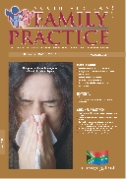Policy Guidelines for Risk-Sharing Agreements in South Africa
Keywords:
Risk-sharing agreements, Managed Healthcare, Biologic Medicine, Financial, Outcomes-based Reimbursement
Abstract
Background: Biological medicines are clinically effective but very expensive in South Africa. The business decisions of biological manufacturers and payers (medical schemes) impact the access patient’s have to biological medicines. The paper is the second paper of a two part series that explore risk-sharing agreements for biologic medicines. In this paper, the events related to trastuzumab and Discovery Health are presented as a vehicle to explore the application of risk-sharing agreements in South Africa. Methods: The paper critically reviews the current policy framework and assesses the implications for the manufacturer and the payer. The structural necessities for the outcomes-based reimbursement of biologic medicine are revisited and the paper extracts key lessons and presents these as policy guidelines covering the following four phases: pre-planning phase, planning, implementation and monitoring. Results: There are numerous policy implications for the manufacturer of biological medicines and the payers (medical schemes). Each implication directly impacts the establishment of risk sharing agreements and inevitably determines the success or failure of such agreements. Two organisations comparable to the NCQA and NICE are required for the successful implementation of outcomes-based reimbursement. The precursors for the development of the such organisations already exist in South African legislation. Risk-sharing agreements have been narrowly conceptualised as a financial risk management tool devoid of clinical and QoL outcomes measurement. Conclusions: A risk-sharing agreement is a useful tool to manage the risk of introducing clinically effective and very expensive medicines into the healthcare market. Clinical, QoL and financial outcome measures should be integrated into a risk-sharing agreement. A risk-sharing agreement is a tool that bridges the conflicting priorities of the manufacturer of biological medicine and the payer. Moreover, it is a mechanism that mitigates the ethical, social, and political consequences of denying care to patients often confronted with an all-or-nothing situation.
Published
2008-07-03
Section
Forum
By submitting manuscripts to SAFP, authors of original articles are assigning copyright to the South African Academy of Family Physicians. Copyright of review articles are assigned to the Publisher, Medpharm Publications (Pty) Ltd, unless otherwise specified. Authors may use their own work after publication without written permission, provided they acknowledge the original source. Individuals and academic institutions may freely copy and distribute articles published in SAFP for educational and research purposes without obtaining permission.

